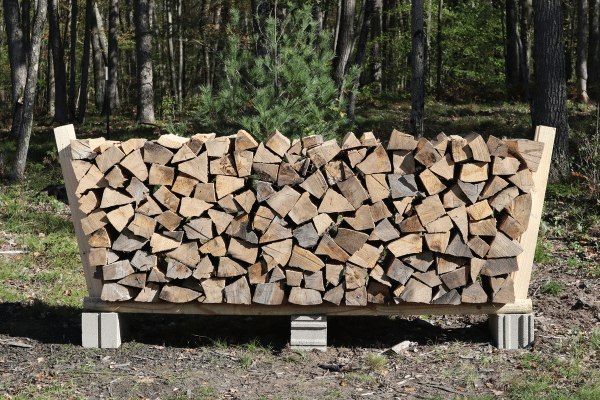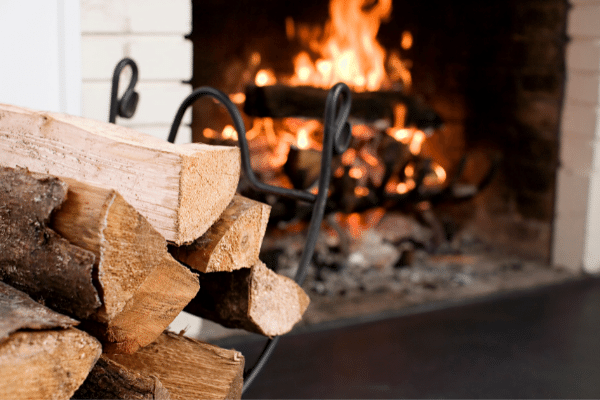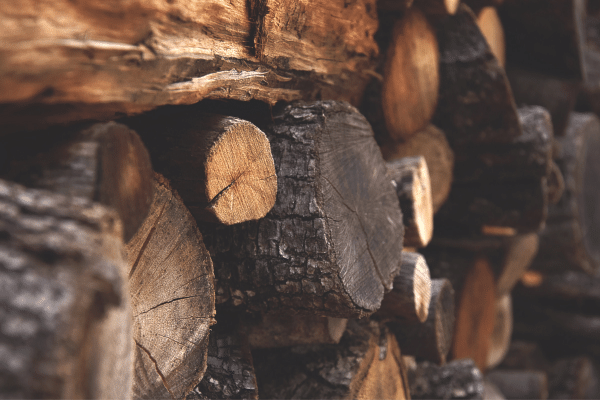- Home
- Types Of Firewood
- Is Chestnut Good Firewood
Is Chestnut Good Firewood
This post may contain affiliate links so I earn a commission.
Roasting chestnuts over the fire during the holidays is a tradition, but is chestnut good firewood?
Most of us aren't tree experts, but “chestnuts roasting over an open fire” is a tradition most are familiar with, which in turn, brings the chestnut tree to the limelight at least a few times a year.
The chestnut tree is hard to come by, but if you can locate the elusive giant, we wouldn't pass it up for the wood stove or fireplace.
In this article, we’ll identify characteristics and facts about the chestnut tree to answer our ultimate question - is chestnut good firewood?
What To Know About The Chestnut Tree
The American chestnut, Castanea dentata, or the sweet chestnut, was once one of the largest, fastest-growing species along the eastern front of America.
It has been referred to as “the redwood of the East” but, this isn’t the case for the holiday favorite anymore.
The chestnut tree was a booming product in many ways in the early 20th century.
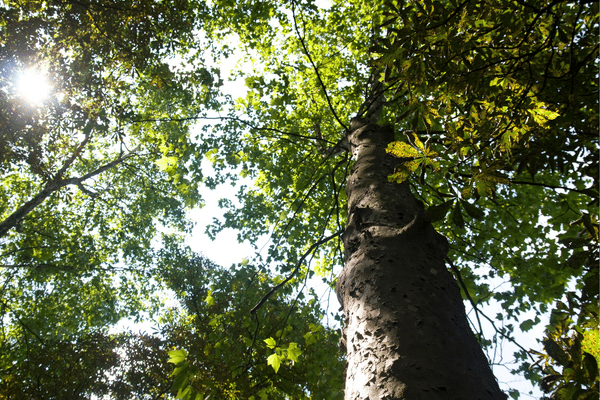
Originally the tree had a population of around 4 billion and
brought income and saturated fats to many.
But as with most things in the world, all good things slow down, and after “blight” was introduced the population dwindled drastically.
What Is Blight?
Blight is a fungi disease that causes mildew and mold, ultimately killing off the giant from the base to the top, leaving the roots unharmed.
Though the blight can’t and will never fully extinct the species, a lot of people are wondering, how rare is chestnut wood?
The overwhelming disease stops the growing tree before it can reach its massive size.
The root systems stay strong under the soil where the blight can not reach, but, once in the open, the blight goes to work within a few years.
The tree is making a comeback and is no longer considered rare, and currently The American Chestnut Foundation is working diligently to produce a blight resistant chestnut species, to regain population size.
Nuts From The Chestnut Tree
The tree has benefitted many species with nutrients for decades.
The chestnut tree produces (you guessed it) chestnuts!
This nut has been a staple for many.
Farmers located near forests of the chestnut would actually be known to lead their cattle or pigs there, to provide them with more nutrition.
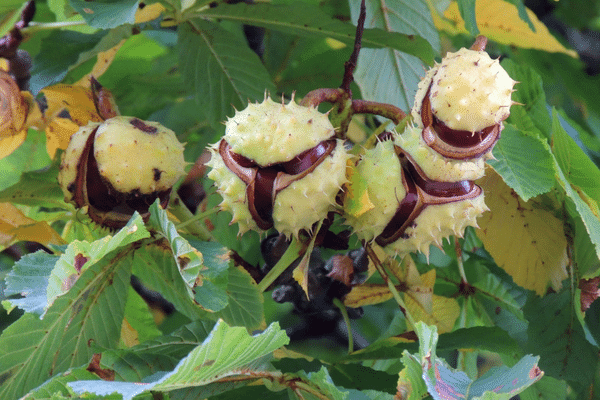
I don’t know about you, but, naturally healthy animals fed on the sweet
chestnut sound better than a slaughterhouse animal.
The chestnut adds a sweet flavor to the animals, making the cow/pig a delicacy to many.
But, the chestnut wasn't only for the animals.
This tree has been incorporated into the rich history of North America since its discovery.
Native Americans would include it in their foods.
Fun fact, If properly prepared the chestnut can be a 100% substitute for flour.
Really this nut can be encapsulated into every meal, dessert, and candy during the holidays.
This is why it's so widely recognized around this time of the year.
What Can I Use Chestnut Wood For?
Surprisingly, the wood from the chestnut tree is considered to be waterproof.
With this characteristic, the tree actually has many practical uses for everyday necessities.
With it being able to resist rot, life expectancy increases dramatically.
The wood is a light brown/red color, which is beautiful when turned into furniture.
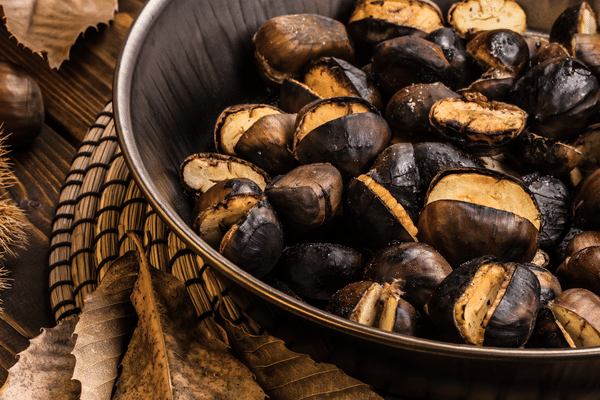
It is a fan favorite in the industry since it's
categorized as a fast-growing hardwood, even though nowadays we can't get it to
grow long enough due to the blight we mentioned earlier.
Since chestnut wood is considered a hardwood, it is ideal for flooring, furniture, and carving.
But, whatever you're going to use the wood for make sure it's in an indoor location because insects love the wood.
I did say chestnut is a good furniture wood, but some people believe the wood isn't the most attractive.
On the other hand, I adore the finished look of chestnut.
It finishes as a nice dark color with plenty of grainy lines to watch pop as you lay on a good clear coat.
Why is chestnut wood valuable?
The wood is more on the rare side, so less of a commodity increases the value.
As well, chestnut wood has many uses in the construction and art industries, increasing demand.
Is Chestnut Good Firewood?
We think it’s a moderate choice when categorizing chestnut wood as firewood.
The wood burns well but doesn’t have the highest heat output.
The tree is available, but it takes 18-24 months to season, making it difficult to plan for this coming season.
The heat also isn't the highest, so I recommend using a mix of other woods like oak, hickory, or ash.
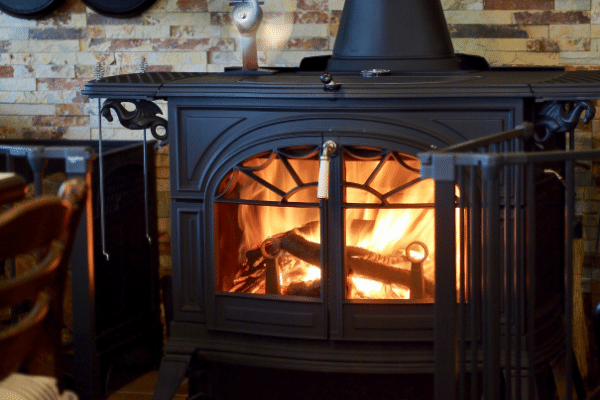
The heat production is around 18 million BTUs per chord, and each
cord weighs roughly 4,600 pounds.
If you try to burn chestnut wood before it is properly seasoned, you’re going to have a high smoke output, but if done right the smoke will be moderate.
The smell is “meh”, it doesn't have a bad scent unless you're burning Chinese chestnut.
Is Chestnut Better Than Oak?
Oak is considered one of the best firewood options available.
So yes, if you have oak, it is preferred to use over chestnut wood.
Is Chestnut Stronger Than Oak?
In some cases, chestnut can be up to five times stronger than oak.
Does Chestnut Release Creosote?
Creosote is the build-up of unburned wood particles in your chimney, similar to unburned fuel on a sparkplug.
Chestnut doesn't leave a lot of creosote making it safe to burn inside in your fireplace or wood stove.
But, if you don't let the 18-24 months pass and the wood isn't properly seasoned then the build-up of creosote increases dramatically.
Is Chestnut Good Firewood - Overall
Our question was “is chestnut good firewood?” and the answer is, if available go ahead and spend the time to harvest it.
Just be sure to make sure it is properly seasoned.
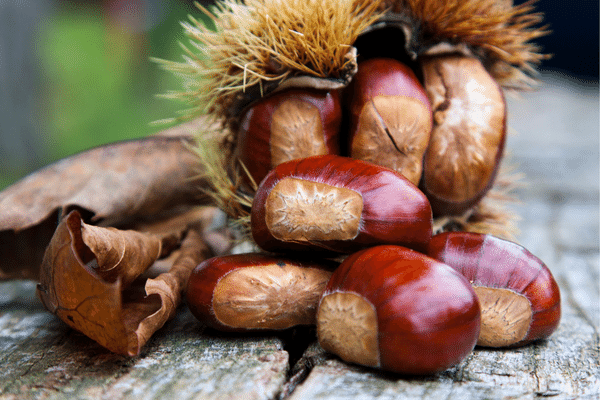
The lengthy time it takes to the season is a big downfall,
but if you find a tree blooming nuts, be sure to collect as many as you can,
and create tasty treats for your family around the holidays.
Key Takeaways Of Chestnut Firewood
- 18-24 months to properly season
- 18 million BTU per cord
- Great for furniture and hardwood floors
- Chestnuts create some of the best desserts
- Oak is better firewood than chestnut
- Chestnut is a very strong hardwood
- “Waterproof” wood
